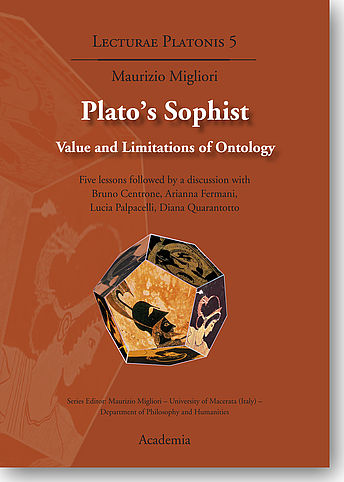Migliori
Plato's Sophist
ISBN 978-3-89665-195-2
englischThis reading of the Sophist differs from traditional ones.
An author must be read in the light of the way he writes. It is common knowledge that Plato's writing technique represents one of the central issues for all scholars. Here the argued thesis is that Plato is a good teacher in the written form too, for a writer is utterly responsible for his works. Consequently, he never abandons his reader.
Plato thinks that philosophy consists in both teamwork and personal discovery. This always requires great 'educational forbearance' on the master's part, as he does not want to stifle the learner's (in our case the reader's) quest for truth by revealing it outright. This gives rise to a manner of teaching that (especially in its written form) always hints at the truth without disclosing it, divulging information that is true without being the all-out truth; instead, the reader's involvement is needed for processing and building on the information given. From the viewpoint of this 'serious game' the Platonic dialogues appear truly 'protreptic': philosophy is put forward to urge the philosopher reader to discover the truth himself with few suggestions.
In the Sophist it is possible to find many Platonic suggestions, for instance the complexity of the diairetic procedure, the 'overreaching and fulfilling' of Parmenides' positions, and above all, the foremost problem: the defining framework of reality. That is established not by ontology but by a theoretical move revolving around the concepts of whole and part, and around the connection-distinction between one, whole and all, before coming to a head in the 'doing-suffering' pair.
englischThis reading of the Sophist differs from traditional ones.
An author must be read in the light of the way he writes. It is common knowledge that Plato's writing technique represents one of the central issues for all scholars. Here the argued thesis is that Plato is a good teacher in the written form too, for a writer is utterly responsible for his works. Consequently, he never abandons his reader.
Plato thinks that philosophy consists in both teamwork and personal discovery. This always requires great 'educational forbearance' on the master's part, as he does not want to stifle the learner's (in our case the reader's) quest for truth by revealing it outright. This gives rise to a manner of teaching that (especially in its written form) always hints at the truth without disclosing it, divulging information that is true without being the all-out truth; instead, the reader's involvement is needed for processing and building on the information given. From the viewpoint of this 'serious game' the Platonic dialogues appear truly 'protreptic': philosophy is put forward to urge the philosopher reader to discover the truth himself with few suggestions.
In the Sophist it is possible to find many Platonic suggestions, for instance the complexity of the diairetic procedure, the 'overreaching and fulfilling' of Parmenides' positions, and above all, the foremost problem: the defining framework of reality. That is established not by ontology but by a theoretical move revolving around the concepts of whole and part, and around the connection-distinction between one, whole and all, before coming to a head in the 'doing-suffering' pair.


